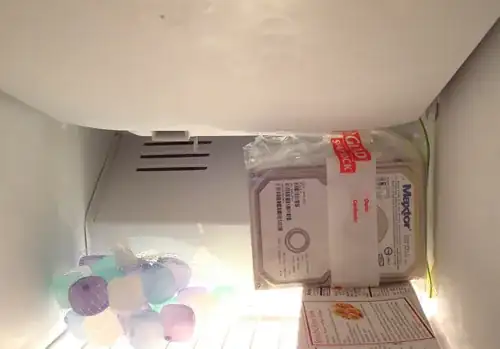TL;DR: No, it's not a viable method, it will likely cause damage and will not likely work at all.
Here's what the largest data recovery firms say on the matter:
datarecovery.com
Stamped on pretty much every page of the site:
Please keep in mind that hard drives are delicate instruments. Like any other delicate instrument, if they are not handled with care or properly cooled, you may experience a failure. Hard drives are sensitive to heat, rapid temperature changes, static electricity, power surges and physical shock. We estimate that most hard drive failures occur due to operating conditions, not manufacture defects.
Which pretty much means, don't mess around with temperatures because HDs are very sensitive to that.
In fact, according to krollontrack.com, hard drives are so temperature dependent that thermal expansion (and I am adding: thermal contraction) are relevant to the design of the base casting assembly:
Today’s hard drives have no room for errors when it comes to platter and head alignment. The tolerances are so exacting that hard drive manufacturers even design ways to keep the Base-Casting Assembly, where all the components are attached to, from shifting due to high temperature situations. For instance, one hard drive manufacturer of high performance SCSI based drives actually designs their Base-Casting Assembly with pre-stress points. The assembly does not line up from corner to diagonal corner—it’s pre-torqued. When the casting assembly heats up, the unit actually twists back (thermal expansion) into a true line-up from corner to corner.
Unsurprisingly, the correct advice abounds on data recovery sites, for example datarecoverylabs.com:
If a drive is making unusual mechanical noises, turn it off immediately and contact a data recovery specialist.
securedatarecovery.com—boasting high-profile customers, from Nasa to Microsoft—also gives the same advice:
Stopping all use of the damaged equipment or medium is the single most important step in any data loss scenario.
Attempting to perform data recovery on your own is very dangerous - if you are not absolutely sure of what you are doing, you might jeopardize the safety of your data. Do not attempt to use data recovery software, and never try to disassemble the hard drive on your own. Continuing to use your hard drive while it is in a degraded state can endanger your data and make the data recovery process more difficult.
But I think nobody makes it more explicit than datarecovery.net:
- DO NOT put your drive in the freezer and then try to spin it up. It is possible that moisture has condensed on the media surfaces. This WILL cause head contact if it has and will destroy the drive.
- DO NOT listen to your friends or continue to look for home remedies on the net such as the one mentioned above, seek professional help if you value the lost data.
As a side note: not a single one boasts "cryogenic units" or anything similar. All the most reputable ones boast clean rooms and privacy/security standards.
